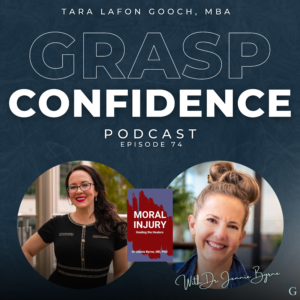The Joy of Missing Out
Why do we feel so tempted to check in on work while we are on vacation or PTO?
I noticed something surprising when I took a four week vacation from my business (see my article “Stop working – be better at your work”).
I noticed that even after removing all work-related distractions, like email, phone calls, notifications, etc, I still felt tempted to check in on the business. Despite relishing the freedom from my work-related notifications, I still had an emotional response to not checking in. Upon further reflection, I see the same pattern in ALL my past work experiences.
When I was not working, I felt FOMO – the fear of missing out.
Turns out that psychologists have a technical term for FOMO – regret aversion. Regret aversion is a powerful human motivator. Experiments show that human behavior is typically more driven by regret aversion than by actually getting a reward.
In the context of time away from work, the fear of missing out on something at work can be greater than the pleasure of taking the unplugged time away from work. A 2020 study showed FOMO in the workplace is real, and it has a distinct impact on employee well-being at work.
The researchers found two kinds of FOMO:
- social comparisons with other employees
- valuable workplace opportunities
They said workplace FOMO is the pervasive apprehension that relative to other employees, one might miss valuable career opportunities, went away or disconnected from work. FOMO at work can manifest as the fear of missing opportunities for rewarding experiences, like building professional relationships, getting valuable information and contributing to key organizational decisions and projects.
Not surprisingly they found workplace FOMO correlated with increased message-tracking behaviors, increase burnout and decreased employee psychological well-being.
If we humans were rational, we would see that FOMO checking-in behavior while on PTO is creating more burnout and disengagement with work. But we are human. So we are unaware of our own regret aversion and we continue to feel FOMO while on PTO.
When I became self-aware of my own human FOMO while on my four week vacation, I tried to suppress it. I tried to actively not have fear missing out. I tried to tell myself I wasn’t anxious or worried and that I should enjoy my time away from the business. None of this worked.
Active suppression of the problem was getting me nowhere, so I tried a different approach. I spent time cognitively reframing the problem. Rather than engaging in a scarcity mindset – I was missing out – I tried to shift into a generous mindset. I went back to my coach – 🙌 Dr. Sabrina Starling – and asked: how can I make this four week vacation feel better?
She advised me that one of the ways I could shift the mindset was to reframe: my being away from my business would help build my team and develop my employees.
This was totally counter-intuitive to me. How would I be helping my team when I was not there to help them? Dr Sabrina explained that when I was there all the time, actively jumping in to solve problems and support everyone, I was actually repressing their potential and making them feel helpless.
She taught me how to carefully prepare the transition, step away, and then learn from my return in partnership with the team. By doing these steps, I was allowing for individuals to experience growth with support. The key was both the careful preparation, and more importantly the collaborative learning upon my return.
If I thought about my four weeks away from the business as an opportunity to grow my team and an opportunity to grow my business, I could enter a new mindset. Instead of FOMO – the fear of missing out, I could have JOMO – the joy of missing out.
JOMO is different than FOMO. JOMO takes a positive, generous mindset rather than a negative, scarcity mindset. JOMO allows for more nonjudgemental curiosity and learning. JOMO allows me to be a human being, and it allows my team to be human beings. We can all make mistakes and collaboratively learn together.
Over the years, I have tried to bring this concept of JOMO to all of my time away from work. It is still counterintuitive, and it still requires proactive positive reframing. Finding JOMO has been surprising on a variety of levels:
- JOMO revealed what was actually important at my work and made it easier to let go of unimportant work.
- JOMO highlighted areas in which I was doing habitual busy-work at the cost of more difficult but more meaningful strategic work.
- JOMO showed me that my team needed a break from me – I can be intense and bossy.
- JOMO made me more empathetic towards the power FOMO may hold over others on my team.
I wonder what it would be like if we all used PTO as a time to experiment with the joy of missing out. If we were all able to take time away and not stress about what we were missing, how much better would we be at work? How much better would our teams be? How much burnout could we avoid?
I am curious if others have found the joy in missing out. Please share if you are experimenting with JOMO this summer – I would love to hear your ideas.







